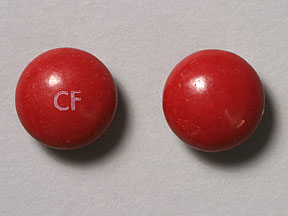
Coricidin Hbp Cold/flu Coupons & Savings Card – Discount Prices from $8.59
My prescription
Edit
2-325MG, Coricidin Hbp Cold/flu (20 Tablets)
Select pharmacy

Walgreens
$8.59
COUPON PRICE
Albertsons
$14.05
COUPON PRICECoricidin Hbp Cold/flu savings card
Show this card to your pharmacist
Walgreens
$8.59
BIN
ID
PCN
GRP
019876
LHA5403034
CHIPPO
LHX
Powered by
Price history for Coricidin Hbp Cold/flu
20 Tablets, 2-325MG
Average retail price for Coricidin Hbp Cold/flu
Average SaveHealth price for Coricidin Hbp Cold/flu
Our price history data is based on aggregated prescription data collected from participating pharmacies in America. Our prescription data updates daily to reflect the latest price changes. If you notice a missing data point, it means there wasn't sufficient data available to generate a monetary value for that date.
*Retail prices are based on pharmacy claims data, and may not be accurate when we don't have enough claims.
Coricidin Hbp Cold/flu dosage forms
Dosage Quantity Price from Per unit 2-325MG 20 Tablets $8.59 $0.43 2-325MG 10 Tablets $5.30 $0.53 2-325MG 24 Tablets $9.91 $0.41 2-325MG 100 Tablets $34.96 $0.35
| Dosage | Quantity | Price from | Per unit |
|---|---|---|---|
| 2-325MG | 20 Tablets | $8.59 | $0.43 |
| 2-325MG | 10 Tablets | $5.30 | $0.53 |
| 2-325MG | 24 Tablets | $9.91 | $0.41 |
| 2-325MG | 100 Tablets | $34.96 | $0.35 |
What is coricidin HBP cold and flu used for?
Coricidin HBP Cold and Flu is used to relieve symptoms associated with the common cold and flu, such as congestion, runny nose, sneezing, and cough. It is specifically formulated for individuals with high blood pressure, as it does not contain decongestants that can raise blood pressure.
Who should not take coricidin HBP?
Individuals who should avoid taking Coricidin HBP include those who are allergic to any of its ingredients, those with severe high blood pressure or heart disease, and those taking monoamine oxidase inhibitors (MAOIs) or who have taken them in the last 14 days. Additionally, people with certain medical conditions such as glaucoma, enlarged prostate, or urinary retention should consult a healthcare provider before using it. Pregnant or breastfeeding individuals should also seek medical advice prior to use.
Does coricidin cause a false positive drug test?
Coricidin, which contains dextromethorphan, can potentially cause a false positive for phencyclidine (PCP) on a drug test. It is important for individuals undergoing drug testing to inform the testing facility of any over-the-counter medications they are taking to help interpret the results accurately.
What does coricidin hbp cold and flu do?
Coricidin HBP Cold and Flu is a medication formulated to relieve symptoms associated with colds and flu, such as nasal congestion, cough, sore throat, and body aches. It is specifically designed for individuals with high blood pressure, as it does not contain decongestants that can raise blood pressure.
Can I take Mucinex and Coricidin at the same time?
It is generally not recommended to take Mucinex and Coricidin together without consulting a healthcare professional. Both medications may contain ingredients that could overlap, leading to potential side effects or interactions. It is important to check the specific formulations of each product and consult with a healthcare provider or pharmacist to ensure safe use.
